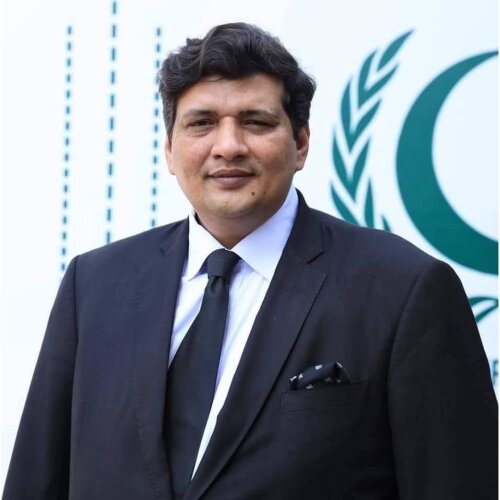Best Child Abuse Lawyers in Swat
Share your needs with us, get contacted by law firms.
Free. Takes 2 min.
Free Guide to Hiring a Family Lawyer
List of the best lawyers in Swat, Pakistan
About Child Abuse Law in Swat, Pakistan
Child abuse is a critical issue in Swat, Pakistan, with legal implications that cover physical, emotional, and sexual harm, as well as neglect of minors. The legal framework for protecting children in Swat is informed by national Pakistani laws, some of which are further augmented by provincial regulations. The Constitution of Pakistan provides the basic right to a secure and safe upbringing. Additionally, various statutes, such as the Pakistan Penal Code and the Child Protection Act, outline specific offenses related to child abuse and the corresponding penalties.
Why You May Need a Lawyer
Legal help may be essential in a wide array of scenarios related to child abuse. Victims or their guardians often seek lawyers for reporting abuse, navigating the criminal justice system, obtaining protective orders, or dealing with custody and guardianship issues. Lawyers are also crucial for representing the child's best interests during trials, ensuring the correct application of child protection laws, and assisting with compensation claims.
Local Laws Overview
Child abuse laws in Swat fall under the umbrella of Pakistani national laws. The penal code stipulates penalties for crimes such as child assault, harassment, and exploitation. Moreover, the Khyber Pakhtunkhwa province, where Swat is located, has child welfare and protection institutions that work in accordance with the Khyber Pakhtunkhwa Child Protection and Welfare Act. This act provides a comprehensive legal framework for the protection, relief, and rehabilitation of children in need, including victims of abuse.
Frequently Asked Questions
What constitutes child abuse under Swat's legal system?
Child abuse encompasses any form of physical, emotional, sexual harm, or neglect that a child may endure. This includes assault, exploitation, trafficking, and maltreatment by guardians or caregivers.
Who can report child abuse in Swat?
Any individual who suspects or witnesses child abuse is encouraged to report it. Mandatory reporting may be imposed on certain professionals like teachers and healthcare workers.
What is the legal age of a child in Pakistan?
The legal age of a child in Pakistan is defined as anyone below the age of 18.
Can non-relatives report suspected child abuse?
Yes, non-relatives can report suspected child abuse. It is a communal and legal obligation to report any such occurrences.
What are the penalties for child abuse in Swat?
The penalties for child abuse can include imprisonment, fines, or both, depending on the severity and nature of the offense.
What role do local authorities play in child abuse cases?
Local authorities, including police and child protection agencies, investigate reports of abuse, work to protect the child, and ensure legal procedures are followed.
Are there any special courts for child abuse cases in Swat?
While there are no dedicated child abuse courts, specially trained judges and courtrooms are often allocated to ensure sensitive handling of such cases.
Can victims of child abuse receive compensation?
Victims may receive compensation, subject to the courts’ discretion and the specific circumstances of the case.
Is counseling provided to children who have faced abuse?
Counseling services are often recommended and may be facilitated by child protection services or non-governmental organizations.
What should one do if they know a child who is facing abuse?
Immediately report the situation to the local police or child welfare agencies. It's important to provide as much information as possible to aid authorities in taking the appropriate action.
Additional Resources
Individuals seeking information or reporting child abuse can reach out to the Child Protection Welfare Bureau, local NGOs working in the field of child protection, and national helplines dedicated to children’s rights and safety.
Next Steps
If you require legal assistance in matters of child abuse, the first step is to contact local law enforcement or child protection services to ensure the safety of the child. Following this, reaching out to a reputable lawyer familiar with child protection laws is crucial. An attorney will guide you through the legal process, represent you and the child’s interests, and work towards achieving justice and support for the child.
Lawzana helps you find the best lawyers and law firms in Swat through a curated and pre-screened list of qualified legal professionals. Our platform offers rankings and detailed profiles of attorneys and law firms, allowing you to compare based on practice areas, including Child Abuse, experience, and client feedback.
Each profile includes a description of the firm's areas of practice, client reviews, team members and partners, year of establishment, spoken languages, office locations, contact information, social media presence, and any published articles or resources. Most firms on our platform speak English and are experienced in both local and international legal matters.
Get a quote from top-rated law firms in Swat, Pakistan — quickly, securely, and without unnecessary hassle.
Disclaimer:
The information provided on this page is for general informational purposes only and does not constitute legal advice. While we strive to ensure the accuracy and relevance of the content, legal information may change over time, and interpretations of the law can vary. You should always consult with a qualified legal professional for advice specific to your situation.
We disclaim all liability for actions taken or not taken based on the content of this page. If you believe any information is incorrect or outdated, please contact us, and we will review and update it where appropriate.








